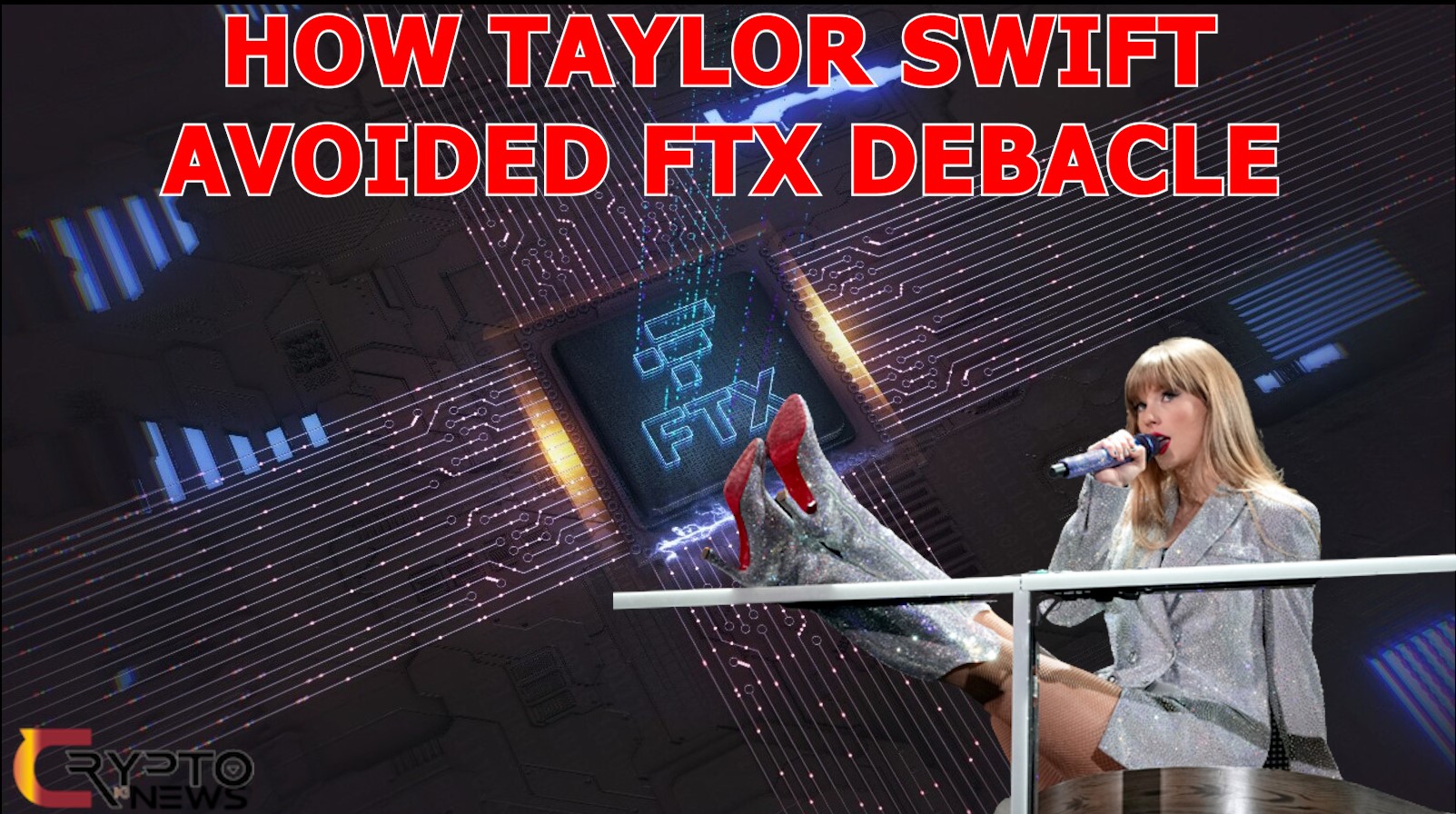The collapse of FTX was devastating for many crypto investors, both in the U.S. and the rest of the world. It isn’t yet clear whether people will be able to get any of their money back, nor how long it will take. A lot depends on what happens in the bankruptcy courts and how much money the new leadership is able to recover.
Taylor Swift avoided signing a $100 million sponsorship deal with FTX because she was the only celebrity to question the crypto exchange, according to the lawyer handling a class-action lawsuit against several FTX promoters.
Adam Moskowitz appeared on “The Scoop” podcast to discuss the lawsuit, and said that the plaintiffs are seeking over $5 billion from FTX’s celebrity endorsers, including Shaquille O’Neal, Tom Brady, and Larry David.
The lawyer alleged that celebrities didn’t do their due diligence to check whether FTX was breaking the law. “The one person I found that did that was Taylor Swift,” Moskowitz told The Scoop’s Frank Chaparro, adding that Swift pulled out of the deal and never promoted the now-bankrupt exchange

Some investors are pursuing a different route. They are taking out lawsuits against celebrities who promoted FTX and other crypto firms. For example, the Moskowitz Law Firm is seeking $5 billion in action against personalities such as Tom Brady, Kevin O’Leary, Shaquille O’Neal, and Larry David, who promoted FTX. “We’re going after the influencers, we’re going after the brand ambassadors, and then of course, we’ll go after any money that’s left,” said Adam Moskowitz on The Scoop podcast.
He also said that one of the few celebs who questioned and then turned down an FTX deal was Taylor Swift. Why? She was concerned that FTX was selling unregistered securities.
Are cryptocurrencies unregistered securities?
The issue of whether or not cryptocurrencies could be securities has dogged the industry for years. It matters because there are strict rules about how securities are managed, including how they can be traded and how they share information. If a product is a security, it has to be registered with the Securities and Exchange Commission (SEC) and it can only be traded by licensed stockbrokers. Many top crypto exchanges are not licensed security brokers.
Right now, many cryptocurrencies are treated as commodities, meaning they come under the remit of the Commodity Futures Trading Commission (CFTC). But the SEC argues that a lot of crypto products are, in fact, unregistered securities. The lawyers who want to sue FTX brand ambassadors say the same.
The SEC uses something called the Howey test, which states that if people invest money into a common enterprise with a reasonable expectation of profits to be derived from the efforts of others, it qualifies as an “investment contract.” Investment contracts are a type of security, and there’s still debate about whether many cryptocurrencies check all four boxes.
As if all that wasn’t enough to digest, another legal body – the New York Attorney General (NYAG) – weighed in earlier this year. It filed a case against KuCoin for trading unregistered securities. In its suit, it asserts that the second-biggest crypto, Ethereum (ETH), is a security. Meanwhile, the crypto industry complains about a lack of regulatory clarity. In the absence of clearer rules from Washington, a lot hinges on how cases — such as the SEC’s ongoing action against Ripple (XRP) – play out in court.
What investors can learn from Taylor Swift’s question
Cryptocurrency is a relatively new and unregulated industry. If you’re considering buying crypto, Taylor Swift’s question is an important one. If authorities decide that top cryptocurrencies like Ethereum are actually securities, those projects would have to follow the SEC rules.
In the long term, increased regulation — whatever shape that takes — could be beneficial for the crypto industry. It might build much needed trust and give more transparency around what crypto platforms are doing with your cash. It may reduce instances of market manipulation and insider trading. But could also suffocate projects in their infancy and make it hard for retail investors to buy and sell certain coins and tokens.
As an investor, it’s important to understand the debate and pay attention to the various court cases. For example, the Moskowitz case suggests investors might claw back money they lost in the FTX collapse if cryptos are securities. However, that ruling could also have a significant impact on prices and change the way the U.S. crypto industry works.
Bottom line
One of the many risks involved in crypto investing is the limited levels of investor protection that come with a less-than-clear regulatory environment. Others are the high volatility, uncertainty around how the technology might develop, and the potential for market manipulation. If you hold crypto, be clear on those risks. Only invest money you can afford to lose and ensure that crypto only makes up a small portion of your portfolio.



